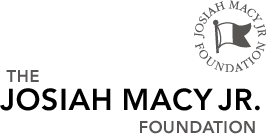News & Commentary
Join the Foundation, our grantees, and leading experts for commentary and the latest news on the education and training of health professionals.
From The President

5.12.11
Building a Foundation for Team-Based Care
Washington, D.C.
We have good evidence that health care delivered in teams is more efficient and leads to better outcomes for patients. But, while we are beginning to break down the silos that doctors, nurses and other health professionals work in, collaborative education is still not the norm. By providing opportunities for students from different health professions to work together in classroom and clinical settings, we can build a foundation for team-based care. Two new reports released this week promise to accelerate interprofessional education in health professions schools and put practitioners on a path to working together in a way that we know leads to higher quality care, reduces medical errors and meets the public’s needs.
The first report [PDF], from the Interprofessional Education Collaborative (IPEC) a unique partnership of six associations of health professional schools, puts forth a set of core competencies that define the skills and behaviors that health professionals need in order to participate effectively in collaborative practice and team-based care. The second report [PDF], generated from a February 2011 conference on team-based competencies hosted by HRSA and co-sponsored by the Macy Foundation, the Robert Wood Johnson Foundation, and the ABIM Foundation, outlines an action plan to solidify these competencies and advance interprofessional education. These action strategies focus on five areas:
- 1. Communicating and disseminating the competencies to key stakeholders
- 2. Developing interprofessional faculty and resources
- 3. Strengthening metrics and research to identify techniques that work
- 4. Developing new collaborative academic practices and collaborations with community learning sites
- 5. Advancing policies that would expand funding sources to support education and research and test new care models
There has been a great increase in interprofessional activities across the country in recent years, with medical, nursing, public health, dentistry, pharmacy and other health professions schools forging new partnerships. Among them are several Macy grantees who are working together to reform curriculums and make team-based, collaborative education a priority and a core part of how the next generation of health professionals learn.
Hallmarks of their success include: the engagement of deans and a commitment from the institutions to plan interprofessional education; a rigorous approach focused on metrics and outcomes; a continuum of interprofessional experiences; and the use of new technologies including simulation and on-line learning to overcome logistical barriers such as health professionals schools being housed on separate campuses and having different academic calendars. Read more [PDF] about some of these efforts.
But these changes are not happening fast enough or broadly enough to really make a significant difference. IPEC’s core competencies for interprofessional collaborative practice give us a common language and a set of benchmarks. We’ve been down this road before. Now it’s up to medical leaders to take these agreed-upon competencies and leverage this window of opportunity to transform health professions education and improve the way we deliver care.
Read the two reports here:


No comments yet.